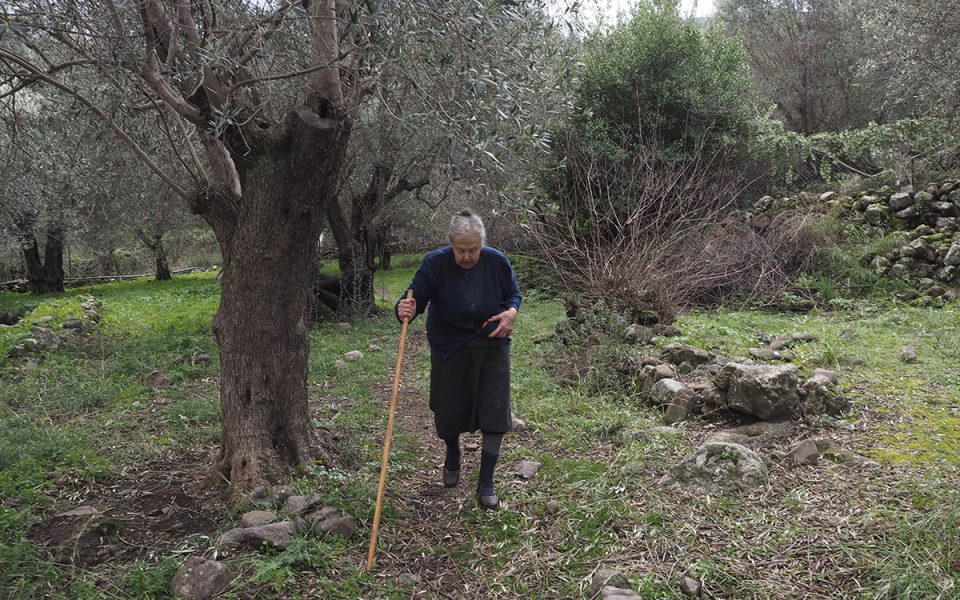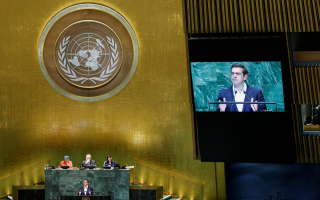‘Why not do it?’

“If I can do something, why not do it?” Maritsa Mavrapidi asked a journalist in 2015, when a flood of desperate people from the shores of Asia Minor arrived on Greece’s eastern Aegean islands. She was one of a group of three elderly women who were photographed as one fed a baby with a bottle of milk shortly after it arrived on Lesvos with its mother and many other refugees. The photograph, by Lefteris Partsalis, touched people across the world. Mavrapidi, who died two days ago at the age of 90, and her companions, though, did not think they had done anything beyond what anyone would do.
The gentle old woman’s bemusement at the emotion prompted by the photograph was clear in her question. This was the attitude with which she and her companions responded to those who wanted to meet them, who wanted to honor them as symbols of humanity and solidarity (they were even nominated for a Nobel Prize).
The question, however, is not simple: The response determines the quality of our society. Lately we have come to believe that “If I can do something, why not do it?” is an excuse for antisocial behavior, along the lines of “I do what I want.” In other words, I can park my car on wheelchair ramps, I can destroy road signs, I can throw obstructions in the way of those who seek my help in the public administration, I can attack policemen or trolley buses with Molotov cocktails, I can present my political opponents or fans of an opposing team as enemies of the people who must be wiped out, I can cultivate hatred against anything that frightens me, I can pursue whatever serves my needs.
But when Maritsa Mavrapidi, Militsa Kamvisi, Stratoula Mavrapidi and Lieutenant Kyriakos Papadopoulos of the Hellenic Coast Guard (who died last year, aged 44), along with countless other volunteers and professionals on the islands and across Greece, found themselves on the frontline of the refugee crisis, they tried to do their best for their fellow human beings. They did not think their actions were anything out of the ordinary. On the other hand, those who only look after their own interests are usually those who make the most noise, who complain that others are cheating them, who present their anger and selfishness as major acts of resistance.
Today, as the political confrontation draws society toward ever greater polarization, we see how easily we succumb to the charms of conflict and complaint. If we adopt Maritsa Mavrapidi’s criterion, we can ask: If our politicians really did want to solve problems, would they act as they act now? Do they do what they do because they can get away with it, or because they cannot do better?





